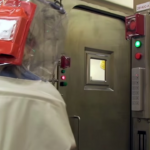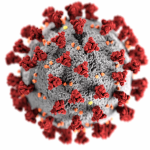
Malaria exacts a dreadfully high price on individuals, nations, and regions. Eliminating this terrible disease would justify some risk. But how much? Does malaria eradication justify the release of gene drives into the wild—gene drives that can, in the words of Scientific American’s Ike Swetlitz, undo “millenia of evolution in a handful of years?” Gene drives that, once released from the cage, can’t be put back in?
These are hard questions, and people in Burkina Faso, Mali, and Uganda are going to have to answer them over the next few years. How are they to do so if, as is true in some cases, their languages lack a word for “gene?”
Gene drives override ordinary genetic rules. They cause every new member of a species—“baby” mosquitoes, for example—to exhibit some characteristic that, absent gene drives, only half would exhibit. Over time, in the case of malaria-bearing mosquitoes, the species’ ability to reproduce would be so compromised that malaria could no longer be transmitted.
That’s the vision, anyway, of Target Malaria, a research consortium with $70 million of Gates money. But Target Malaria will only release gene drive mosquitoes with the consent of the local population. The problem is that even well-educated individuals in “advanced” nations can barely understand a technology such as gene drives. In Burkina Faso, many believe that malaria is transmitted by eating the wrong foods. How are villagers there supposed to offer informed consent?
Target Malaria is trying to get its message across with laminated picture boards. They are introducing the basics of genetics. They are inviting local people into their labs. They are establishing “relay groups” who facilitate communication between scientists and locals.
Is that enough? In the end, says someone associated with the project, “exactly how the gene drive works may matter less to the people than the impact it will have on them and their lives.”
No doubt that’s true. But the impact of gene drives is precisely what no one understands yet.
Publication Name: Scientific American
To read what we're reading, click here
Together, we make the world safer.
The Bulletin elevates expert voices above the noise. But as an independent nonprofit organization, our operations depend on the support of readers like you. Help us continue to deliver quality journalism that holds leaders accountable. Your support of our work at any level is important. In return, we promise our coverage will be understandable, influential, vigilant, solution-oriented, and fair-minded. Together we can make a difference.
Topics: Biosecurity, What We’re Reading














